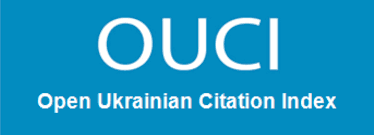DYNAMICS OF ANTIBODIES TITERS UNDER THE ACTION OF BIOLOGICAL STIMULI IN PIGS OF DIFFERENT TYPES OF HIGHER NERVOUS ACTIVITY
A. V. Trokoz
This email address is being protected from spambots. You need JavaScript enabled to view it.
National University of Live and Environmental Science of Ukraine Heroyiv Oborony str., 15, Kyiv–03041, Ukraine
For determination of influence on effect of specific immunity of pigs under the action of biological stimuli in the repair Landrace pigs it were set the types of higher nervous activity of pigs. Were formed four research groups of animals: a strong balanced rolling type of higher nervous activity, strong equilibrium inert, strong unbalanced and weak, and 8 goals each. After that pigs was vaccinated against the porcine reproductive & respiratory syndrome virus (PRRSV) and re vaccinated after 28 days. Before vaccination, 3, 7, 14, 21, 28 days after it, and after 3, 7, 14, 21, 28 days after revaccination in all animals were determined titer of antibodies to the PRRSV by ELISA.
The most reactive to the effects of biological stimuli are animals with strong balanced rolling type of higher nervous activity. Antibodies to PRRSV virus in their organism formed most intensively, which is significantly higher than in the antibodies of other types of higher nervous activity. The smallest level of immunity against PRRSV have animals with weak type of higher nervous activity. Intermediate position occupied by pigs strong equilibrium inert and strong unbalanced type of nervous system. Influence of the type of higher nervous activity in the formation of immunity in pigs confirmed the correlation and analysis of variance.
Features of each animal, including relative strength, balance and mobility of excitation and inhibition in the cortex of the brain, require an individual approach, including during vaccination.
Key words: PIGS, CONDITIONED REFLEX ACTIVITY, TYPE OF NERVOUS SYSTEM, BIOLOGICAL STIMULI, RESPIRATORY REPRODUCTIVE SYNDROME PIGS, SPECIFIC IMMUNITY, ANTIBODY














